The journey began with 2 paths for the 2 sides of the track.
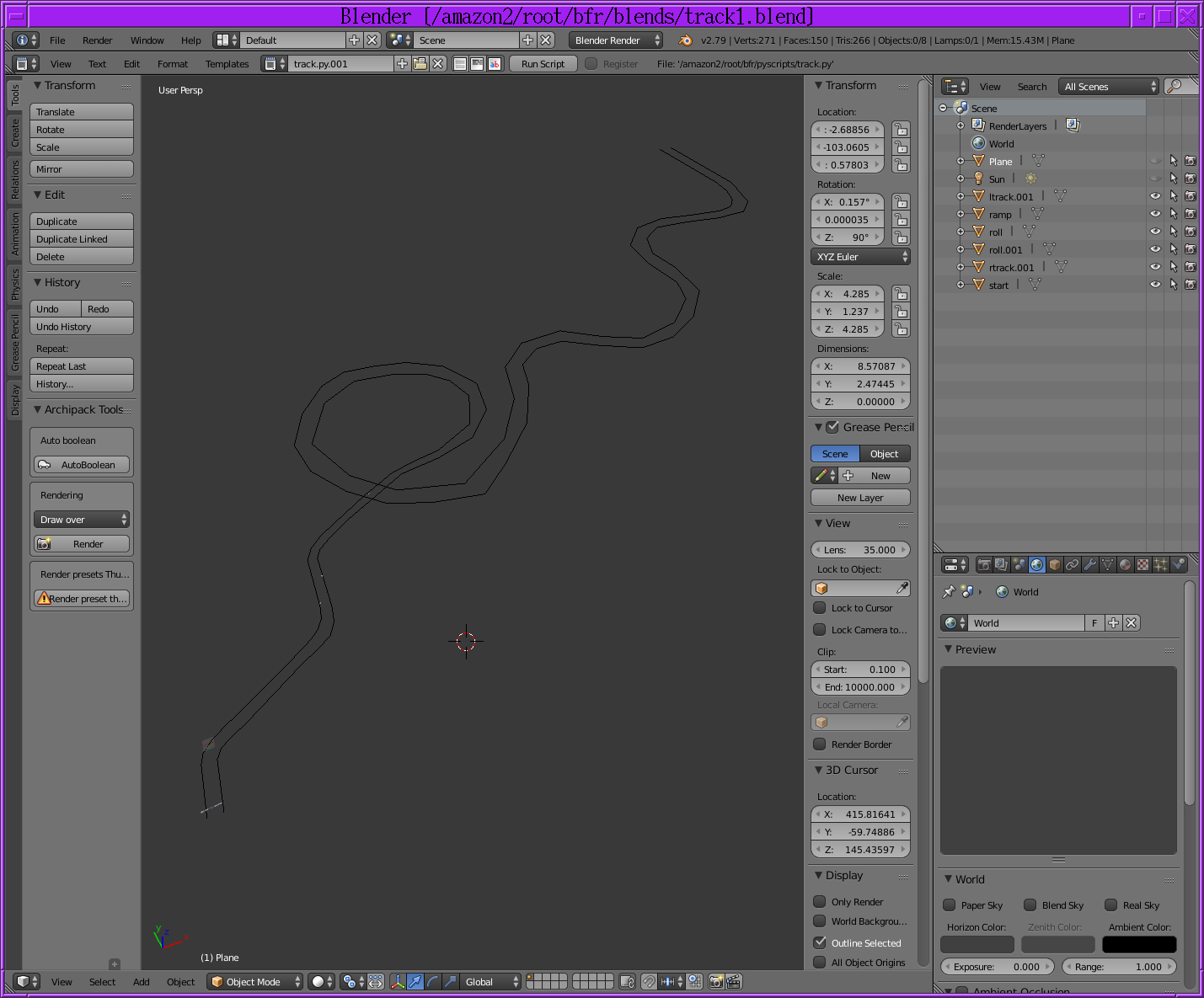
An automated script converted the paths into K barriers for the track.
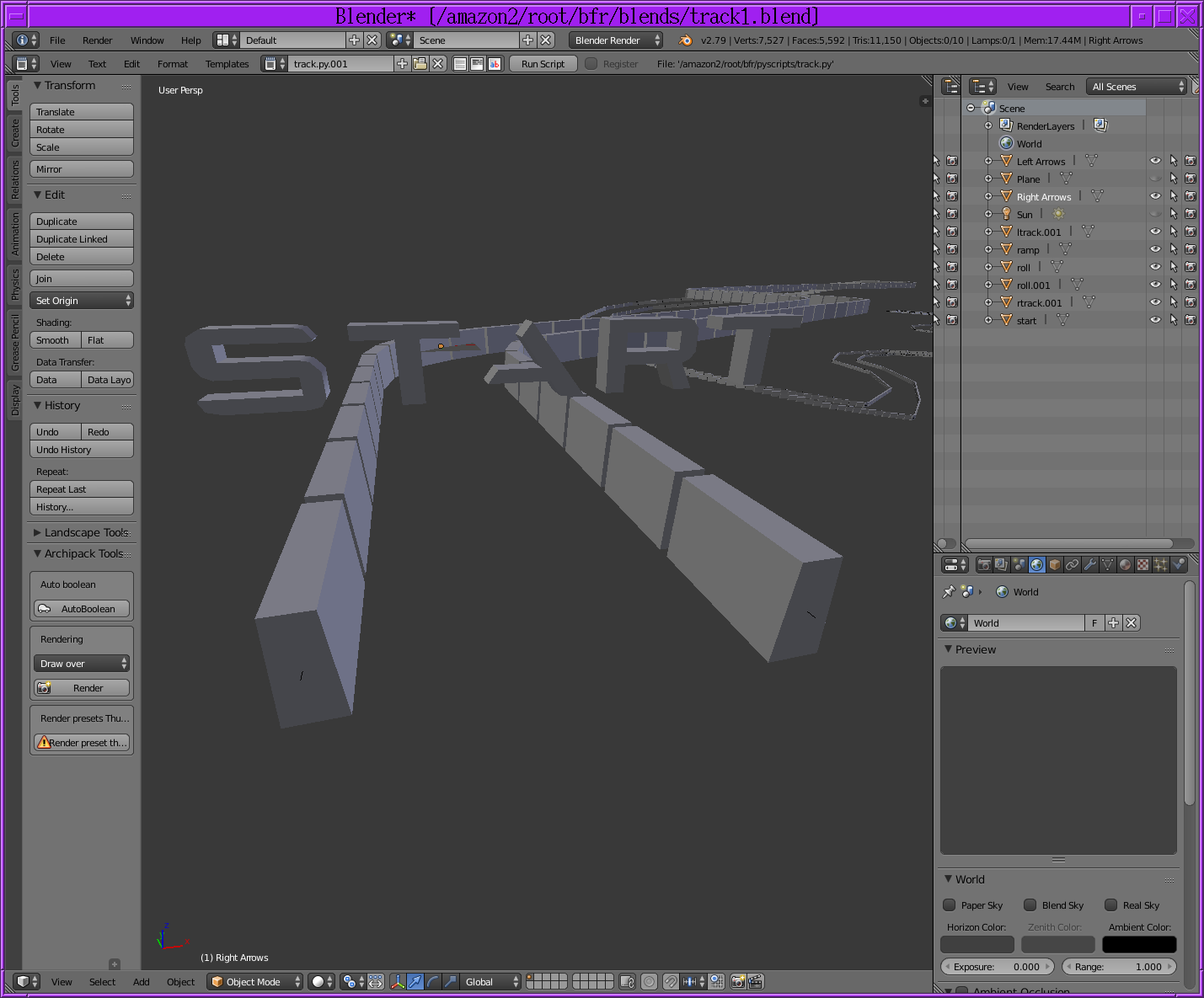
The mane idea is Asphalt 9 had resorted to K barriers to define more detailed tracks inside its existing maps.
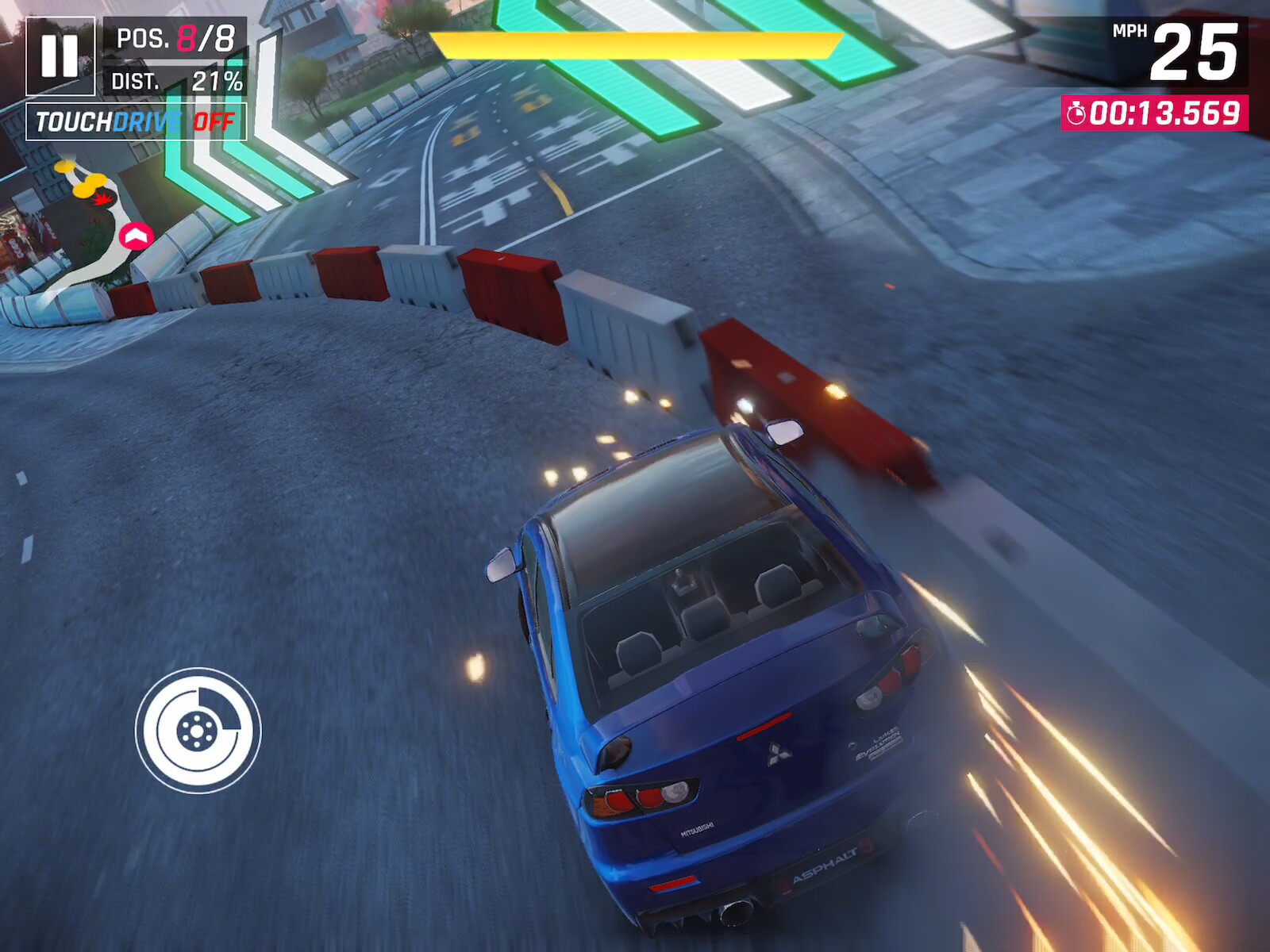
So we would define the entire track with K barriers. A procedurally generated collision plane would span between the K barriers. An invisible boundary beyond the barriers would cause the player to go out of bounds while still letting them jump beyond the barriers a certain amount.
Player control would be limited to just sideways & require ramps to jump. The horizontal collision plane, K barriers, & jumps would dictate vertical movement.
The trick was automatically generating the collision planes with the least amount of information. After staring at the model & trying many algorithms, finally figured out the track needs a 3rd line, a direction line to tell the computer what direction the track is pointing. The 2 sides aren't always parallel to the track's direction. With the direction line, it can properly create the right plane between the 2 sides. Without the direction line, there are many possible planes. The direction line also allows the track to do barrel rolls & loops in 3 dimensions.
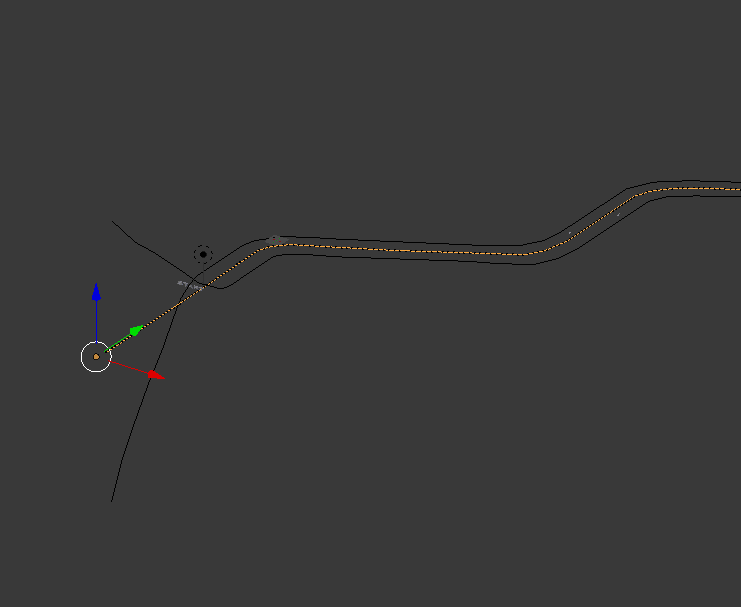
This was the minimum amount of information required to automatically generate a 3D track with barriers & out of bounds areas. A few sputtering development sessions while commuting yielded
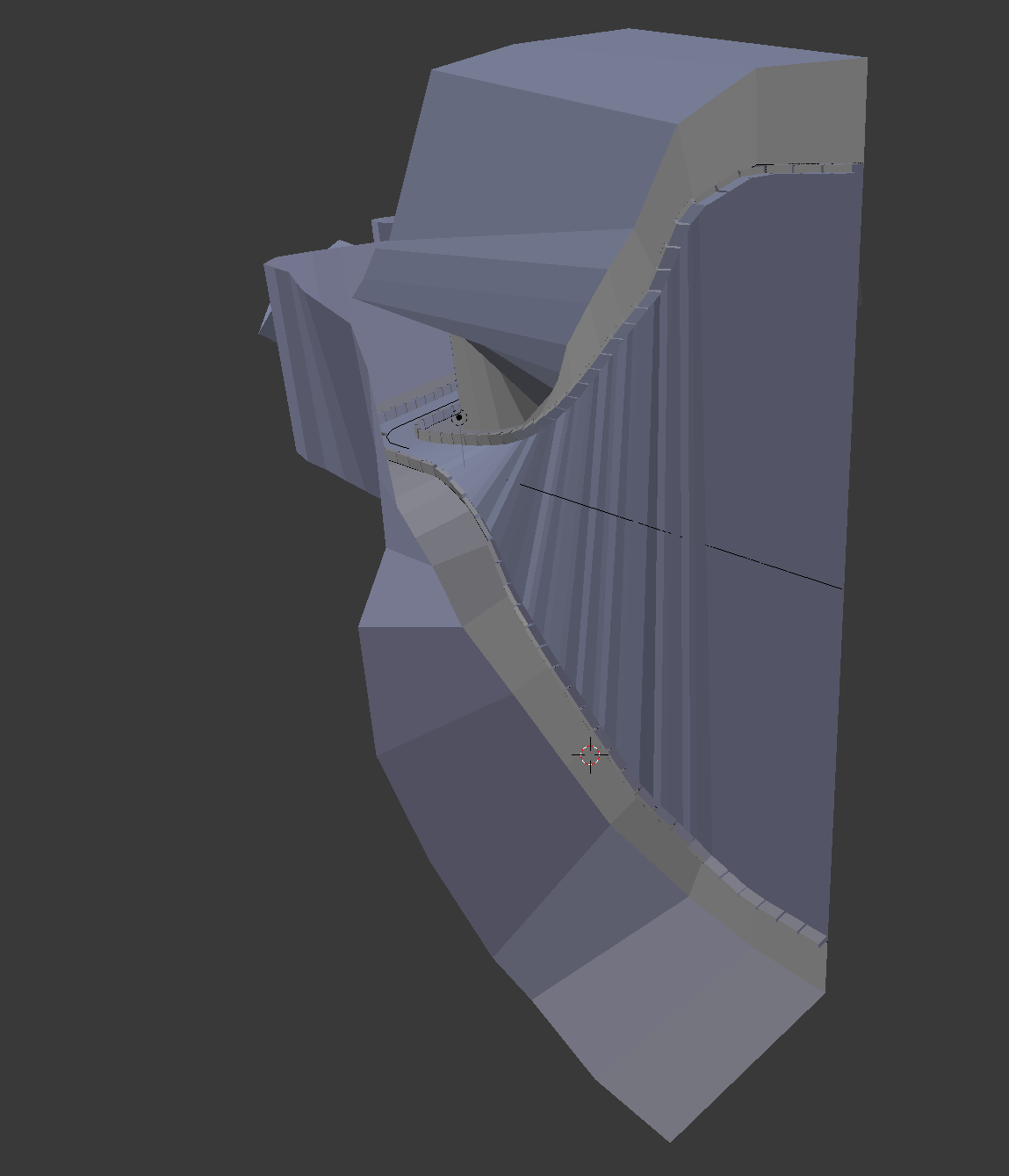
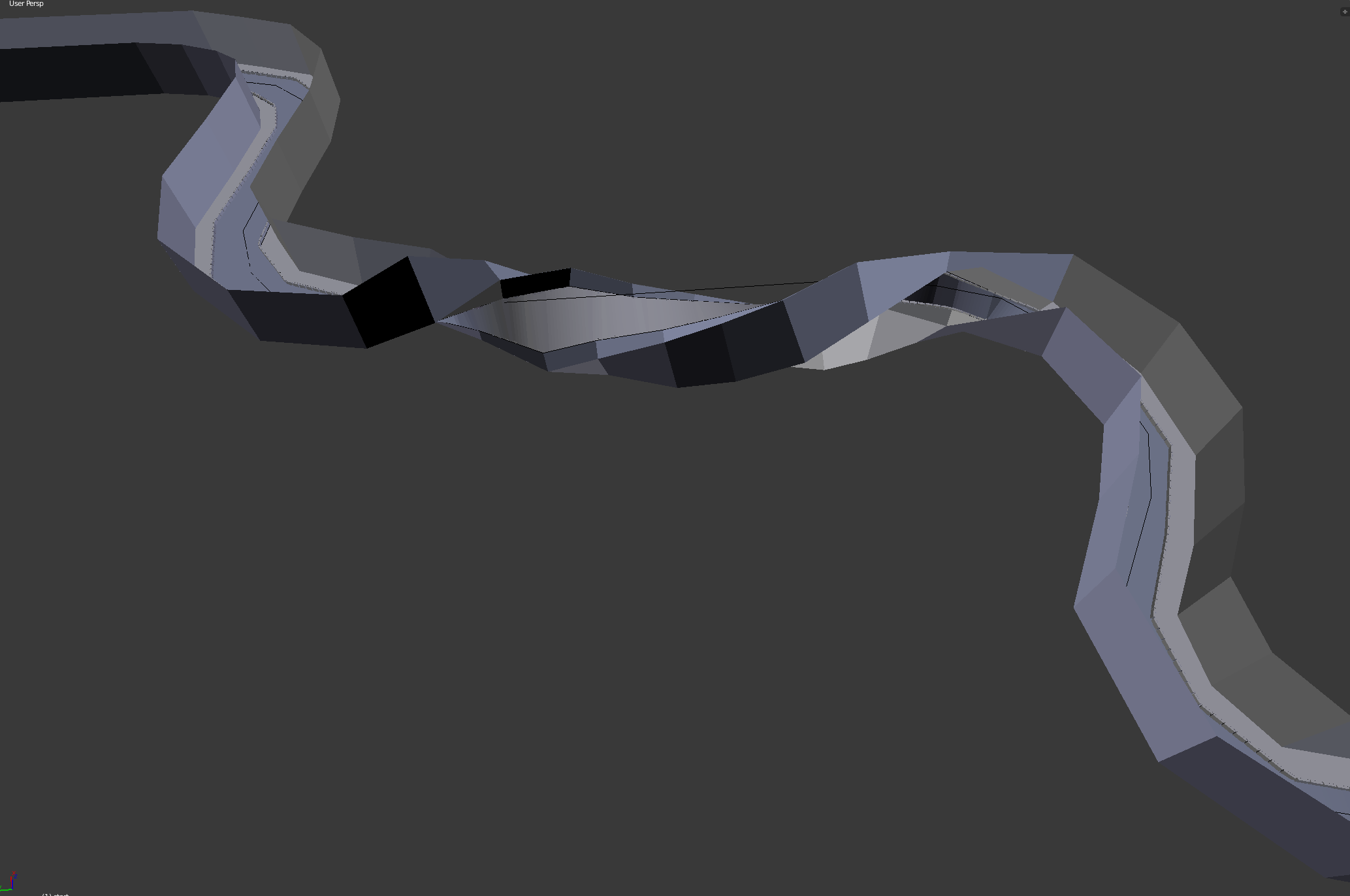
some decent results, at least in model form.
Lions sadly don't like programming games, even though they like the outcome. They're just throwaway content like movies, they don't enhance productivity, but they do make the world a better place. People play through the campaign & throw them away. Making a game stay useful requires constantly expanding the campaign, just like constantly making new movies.
Making the world a better place foremost requires enhancing productivity. It's surprising that peasants in medieval times only occupied 90% of the population, while 99% of today's population would be considered equivalent to peasants since all of our income is eventually consumed by those above us, whether it's through the healthcare system, housing, taxes, inflation, alimony, or our funerals.
We have less leverage than 800 years ago because we're less productive relative to the top 1%. It's much harder to be a google or a facebook than it was to grow food. Creating economically competitive software is ironically not as attainable as we thought it would be.
 lion mclionhead
lion mclionhead
Discussions
Become a Hackaday.io Member
Create an account to leave a comment. Already have an account? Log In.